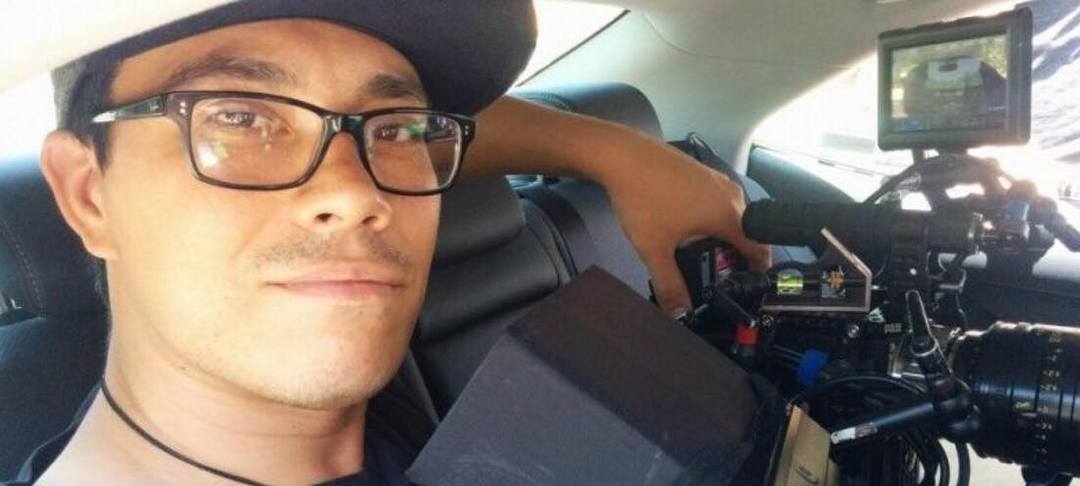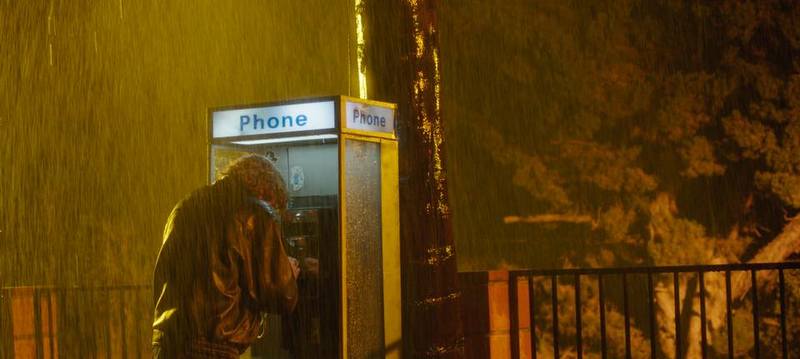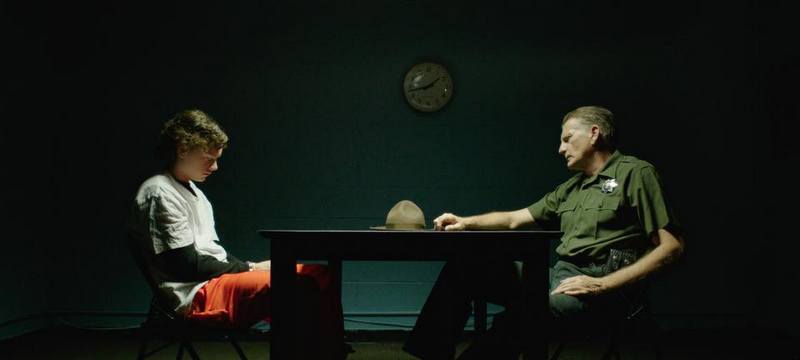
indieactivity: Give a background of your experience with the story, writing, production and marketing?
Carlos: I read Regionrat and liked the vision of the director’s character driven story. I wanted to see it come to life. I jumped on as a cinematographer because I knew I would be able to tell a visually compelling story.
indieactivity: Did you start preparing for production?
Carlos: My job as a cinematographer is to create the director’s vision. To prepare for that, I had to understand what Javier wanted to create. Essentially he wanted a world that could bring you to this small midwestern town where a young man realizes he has another destiny, his life could be so much better. With the use of the proper tools, like the lighting techniques, right camera and lenses, you get the right feel and vibe of what the director is visualizing and how you are bringing the audience into the film. I prepare by making sure myself and the director are on the same page.
Case Study: Javier Reyna presents the making of Regionrat
indieactivity: How do you breakdown a script? (Do you have a process?)
Carlos: Yes, I do have a process for breaking down a script. I break down my scripts based on locations and interior, exterior and day or night scenes. I base my breakdowns for each of the sections on visual arcs. Coming from a lighting background, color variance based on script arc is important. I break the entire script down with notes so that none of the arcs are overlooked.
indieactivity: Do you have a science behind what you do?
Carlos: There is a science behind it. Lighting comes with a balance, what to expose and not to expose, color temperatures are all part of the lighting science. You also have to make sure you are using the proper tools with your camera. For example, certain cameras are made for low light or for high speed and custom tailoring your tools to get the desired result to make sure everything is cohesive is a technical process.

Connor Williams making a phone call in the opening scene of Regionrat
indieactivity: How did you work with your crew on this project?
Carlos: It was a teaching process. We had a limited amount of crew and some new filmmakers on set. My approach was to stay positive, give direction and hopefully they took something away in the end.
indieactivity: During production, what scene (that made the cut) was the hardest to shoot?
Carlos: It would have to be the opening shot with the rain. We were doing a low budget rain gag and there are so many tools you need to complete this process. We had to makeshift a waterproof camera bag, find a location that felt like it was Seattle, at night no less!!! So we put up a pay phone and had to rig lighting inside of the phone booth. We also hung a rain hose as high as we could possibly get. I also had to use fixtures that would not get affected by the water. It’s not like I had a generator and GFCI’s. We were shooting at a crew members house! We also had to put up a dolly on uneven ground to get that shot. It was a lot of work but in the end the shot was beautiful.
Javier Reyna brings Richard Laskowski book, ‘Regionrat’ to the screen
indieactivity: You produced and shot the film, what measure of input did it take to don these hats?
Carlos: I had the equipment, knew how a set runs and have experience as a producer and cinematographer. It seems to me a Cinematographer has to be a producer now a days. There are more and more indie low budget projects than ever before and a being resourceful is key. You have to be willing to think outside the box and be flexible. Because I have these qualities, I find myself doing it more and more.
indieactivity: Is there anything about the independent filmmaking business you still struggle with?
Carlos: The independent filmmaking business is one you must love. We are a group of people that are passionate about creating art. That means that you are putting sweat and tears in and are sacrificing something to make a project happen. Usually it is monetary gain in the actual principle photography portion of a film. All you can do is hope and pray that it is rewarding and acknowledged when it is finished. What do I struggle with? Saying no!

Connor Williams in a scene from Regionrat
indieactivity: Where do you think your strengths line as a cinematographer?
Carlos: My background in lighting is definitely a strength. I am also able to do a lot with a little, which I learned in the marines. I am able to stay within the frame and tune out all the other stuff that is going on around set to stay within the story. I visualize the end result and that motivates every little detail that I see.
indieactivity: How important is marketing? Do you think a project can make any dent without it these days?
Carlos: It depends what you mean by marketing. As a producer I understand that exposure and branding makes a project get noticed. A website, social media and a fan base is a must. I guess you can say that is marketing.
indieactivity: Can you tell us about your marketing activities on the project – and how it’s gone for you?
Carlos: I was a technical and creative producer that was there to help the movie get made. During the filming process I shared content on my company’s social media platforms.
Marcus Trumpp, the German film composer on Regionrat, talks his art
indieactivity: What do you hope audiences get from your film?
Carlos: As a cinematographer for this film, I hope the audience is able to relate to all of the characters. The film is meant to show a little section of America that is not the most glamorous and it is meant to be enjoyed.
indieactivity: What else have you got in the works?
Carlos: I have just finished another feature film, BURN, which is coming out next year. I am working on multiple short films, which includes a few comedies, a thriller and drama and am looking to dive into another feature film THE ROOM ABOVE.
Richard Green Documentary, ‘I Know Catherine, The Log Lady’: Premiere in NYC, LA May 9th
Lynchian Doc I Know Catherine, The Log Lady Makes Hollywood Premiere 4/17, Rollout to Follow
In Camera by Naqqash Khlalid Launch on VOD April 29
Naqqash Khlalid’s Directs Nabhan Rizwan. In Camera stars an EE BAFTA Rising Star Award Nominee.
2025 Philip K. Dick Sci-Fi Film Festival Award Winners Announced
Vanessa Ly’s Memories of the Future Awarded Best PKD Feature
Dreaming of You by Jack McCafferty Debuts VOD & DVD for April Release
Freestyle Acquires “Dreaming of You” for April 15th Release
Hello Stranger by Paul Raschid set for London Games Festival & BIFFF
The film Is set for an April 10th Premiere at The Genesis Cinema in London (LGF) and BIFFF
Daydreamers Official Trailer by Timothy Linh Bui: Released by Dark Star Pictures
Daydreamers Vietnamese Vampire Thriller – May 2nd release









